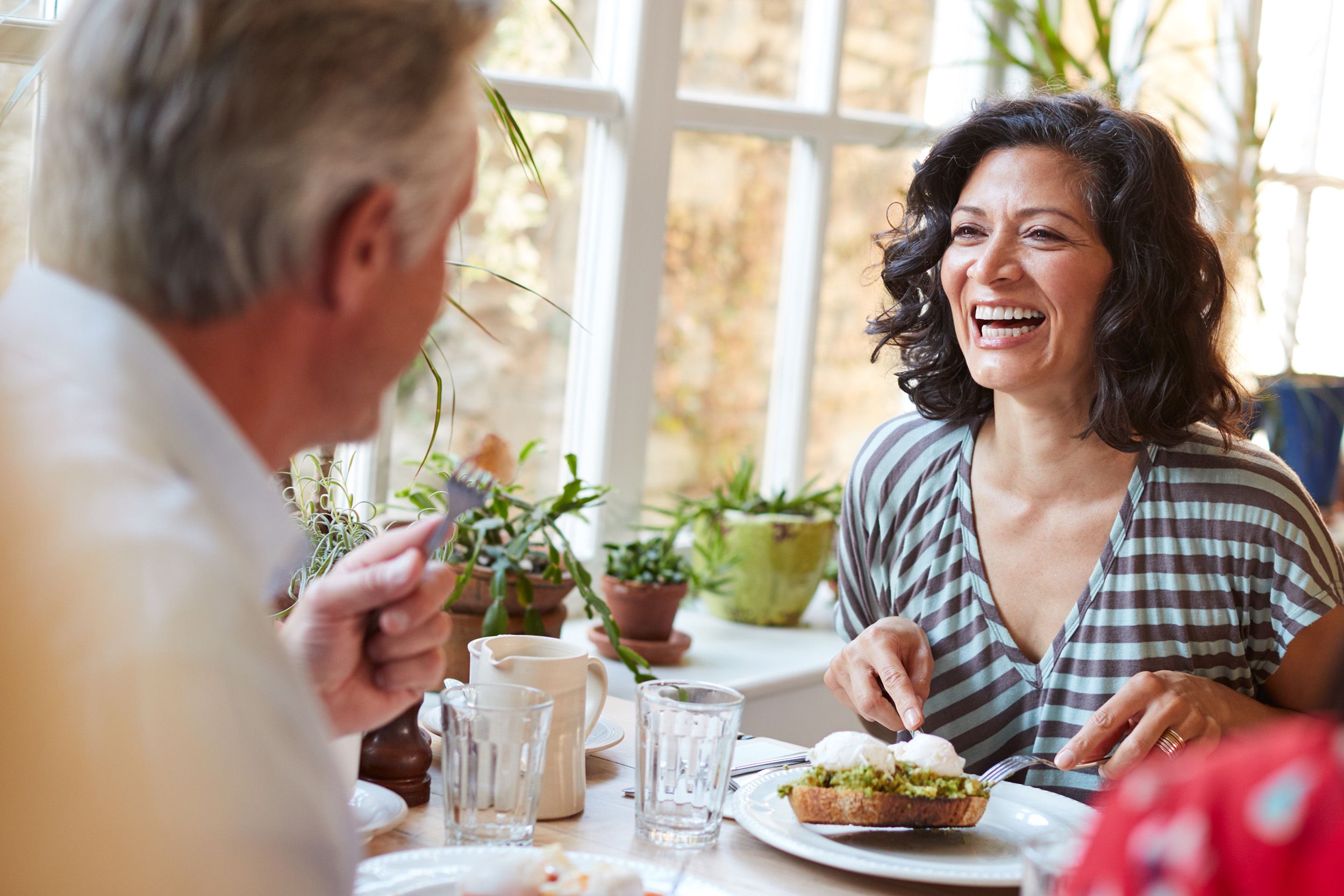
It can be very hard to get back into the dating world after a breakup or divorce. Some clients that I work with were in a relationship for a short time, and it’s not as hard for them to get back into the swing of things. However, for some who were in decades-long marriages, they are now out on their own trying to figure out the dating world. It can be daunting and scary, and some people give up after only a few tries because they feel overwhelmed.
There are some things to consider when you’re getting back into the dating world or even considering dating.
Getting “back out there”
First thing is to make sure that your friends and work colleagues know that you are ready to start dating again, since it always helps to have friends on your side. They may know somebody they could set you up with or suggest a coffee date with a friend of theirs who might be a good fit. It is good to think in terms of just getting to know new people rather than having to feel like it’s got to be an instant, lifelong connection. Sometimes it can just be meeting somebody new for coffee and striking up a friendship if there’s no romantic spark.
Swiping and clicking
These days roughly one-third of single people have an online dating profile. As you probably already know, this way of dating allows you to find and view people that you would never otherwise meet, and you can chat with them before meeting.
A downfall is that there can be too much choice in online dating. Columbia professor Sheena Iyengar has done experiments revealing that an excess of options can induce indecision and paralysis in decision making. Her experiment involved jam samples at a grocery store. When they offered six types of jam as opposed to 24 types of jam, people were ten times as likely to buy jam from the smaller sample number.
This same indecision and paralysis can happen in online dating, so try to give yourself compassion and know that it’s hard work. You may consider hiring a matchmaker if you can afford it—they gather your information and preferences and find matches and then they also set up the dates, making much less work for you!
From message to meeting
Don’t spend too much time talking online—a week or two at the most—then meet to see if you have chemistry. Helen Fisher, noted anthropologist and consultant for Match.com, states that it is best to avoid long online exchanges. The only way to know if you have a future with a person is to meet face to face since “the brain is the best algorithm.” Laurie Davis, author of “Love at First Click,” recommends no more than six messages before meeting offline, since that gives you enough information to know if they are someone you’d want to date. Meeting someplace public is always the best option for safety reasons. Do post photos on your profile.
People still meet in more traditional ways also (work, neighbors, school, through friends), but no matter how you meet a potential partner, you still have to go on dates! However you meet, remember to ask open-ended questions. Also, remind yourself to be interested in your date rather than trying to be interesting yourself. See the Gottman Card Decks app, and go to the Open-ended questions deck if you want some good ideas.
Don’t talk about your ex
Don’t talk about your ex-spouse or -partner! This is crucial. If your date asks you something about your past relationship then it is appropriate to give a brief response. Example: “We grew apart but we get along now when we need to talk about the kids.”
If it was a difficult separation or divorce then keep that very brief. Example: “It was painful and hard but now I am ready to move on and not dwell on the past”
If your date hears you talk about your “crazy ex” and you go on and on about it, that could be a red flag. Same goes if they hear you talking at length about how great your ex is and how you are best friends now—they are going to wonder if you may reconcile or they may feel you are not “over” that person.
Who can you trust?
I’ve had many people ask about how to know who’s safe and trustworthy when you are dating. I find it helpful in my private practice with single clients to go through some of the important points from the book “Safe People” by Drs. Henry Cloud and John Townsend.
Here are some important things to be looking for when you consider safe vs unsafe people:
- Safe people allow you to feel like an equal vs feeling like their parent or their child.
- Safe people are stable over time vs being inconsistent.
- Safe people have empathy and act on it vs being solely concerned with themselves (“I” not “we”).
- Safe people want to mature and grow, and can admit when they are wrong, while unsafe people avoid working on problems, or admitting fault because they believe they are perfect.
- Safe people are willing to earn your trust while unsafe people demand it without earning it.
- Safe people can respect your “no” and honor your boundaries.
In addition: unsafe people apologize without changing their behavior, they blame others, they gossip instead of keeping secrets, and they show up only when they need something.
If you consistently find yourself drawn to unsafe people, then there may be an underlying issue that needs to be addressed. This can be addressed through personal exploration or even individual therapy. As stated in “Safe People,” this could be driven by the need to rescue that unsafe person, fears of isolation or abandonment, or even familiarity with negative relational patterns.
Dr. Gottman has done research on trustworthiness, and found the following five criteria to help separate those who are trustworthy from those who are not. These five criteria are from the book “What Makes Love Last.”
- Honesty. Do not trust someone who lies to you. Don’t come up with excuses for why they lied, or talk yourself out of your doubts.
- Transparency. Make sure they are an open book, and that they invite you to meet their family and friends.
- Accountability. Do they keep their promises and follow through on their commitments?
- Ethical Actions. If you are detecting immoral actions or if you are uncomfortable with their morals, then move on.
- Proof of Alliance. If they can demonstrate that they have your back, even in small ways, then that is a good sign. Do they take your best interests to heart instead of acting only out of self-interest?
Have fun, try to think about it as an adventure. Stay safe, and make sure you take things slow so that you have time to determine if they are safe and trustworthy. Remember, it is hard work, but it’s worth it. Good luck in your dating journey.
Sign up for the Love Notes Newsletter
Get the latest on relationships, parenting, therapy and more from the experts at The Gottman Institute, plus get a FREE download every month!
.

